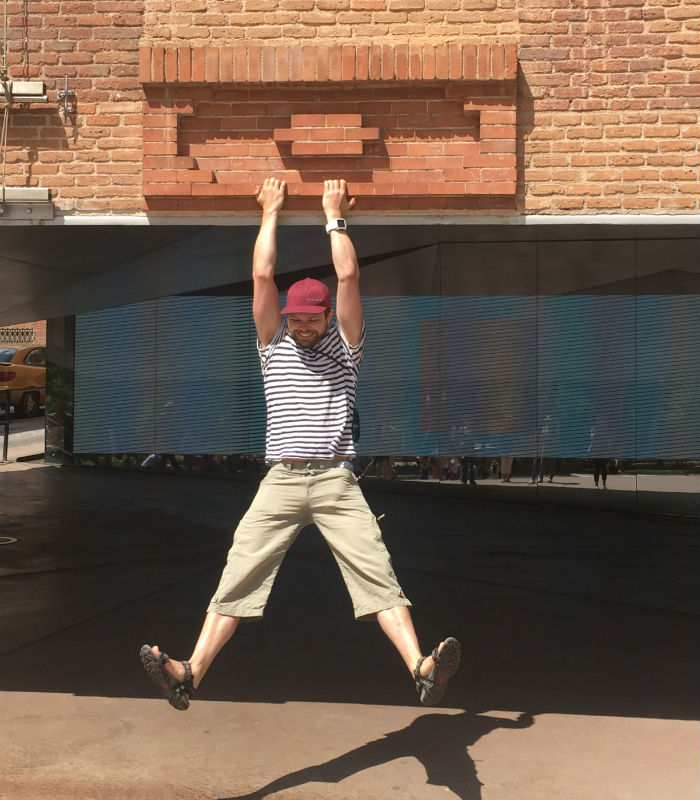Otis is fortunate to work in an office where there is a diverse mix of people from a broad range of geographic and social backgrounds. At an early age, Otis鈥檚 priority in life was making things. He would dismantle anything not fixed down in his house in order to create new objects and spaces. Otis was diagnosed with dyslexia which was frustrating for him at school when learning formal subjects and so went on to study Architecture at university and now works for JDDK, a local North East practice.
As I grew up my interest evolved into rearranging the furniture in my bedroom on a fortnightly basis as I would find myself bored of the space I was living in. Competitive Lego making with friends and aimless scribbling featured highly on my agenda. When I got older I realised that these scribbles resembled something an architect would draw.
Not really knowing what direction to take (outside of playing guitar in a rock band) I managed to choose four completely uncomplimentary subjects for my A-levels Chemistry, Philosophy, Music and Art. I was fortunate in having a careers advisor who I am indebted to, who suggested architecture would be worth a try. I wasn鈥檛 too sure what this strange word meant at the time, but I gave it a go and applied to study architecture.
When I arrived at university it was a revelation reconnecting with what I had always loved doing, drawing, making, constructing. Meeting amazing friends and teachers who shaped my energy in the right direction. It was through this search for my calling I realised I have always experienced an emotional connection with architecture and find my work incredibly fulfilling.
Challenged by dyslexia, I have two sections in my brain which just don鈥檛 fire up like they would in other people's brains and another section is left to do all the work. I have therefore always found writing physically exhausting, give me a design problem to solve any day, that鈥檚 easy compared to writing, as I can prove by the sweat forming around my collar when writing this. I am very grateful to my colleagues who support me with the parts of my work that my dyslexia makes challenging. Teamwork is the answer for me and architecture is the perfect career in that respect.
I have a specific interest in sustainable architecture and parametric design. However, capturing and instilling joy in the design of projects is equally important to me to enhance people's lives on a day to day basis - good design can empower and provide a platform for people to flourish. This is why I was drawn to work at JDDK as their building鈥檚 do just that.
I find it hugely rewarding seeing a project I have worked on come to life. I have been privileged to be part of the 澳门王中王 North East Award-winning, The Sill project for Northumberland National Park Authority. I was part of a team lead by Alison Thornton-Sykes, who had the vision for the scheme, and Matthew Holmes an exceptional Architectural Technologist and BIM manager who has been an oracle of knowledge.
My own main personal interest at the moment is parametric design which is parameter based design creating rules which go on to control design solutions.
At JDDK diversity and equality is already well established, but I do feel strongly that it is something to be nurtured encouraged and protected in our profession. I find this leads to a vibrant working environment where we all contribute our own individuality to the team effort.
Otis' contribution is part of our Faces of Architecture campaign, celebrating the diversity of architects in the North East. If you鈥檇 like to get involved, contact Amy Tomlinson.




